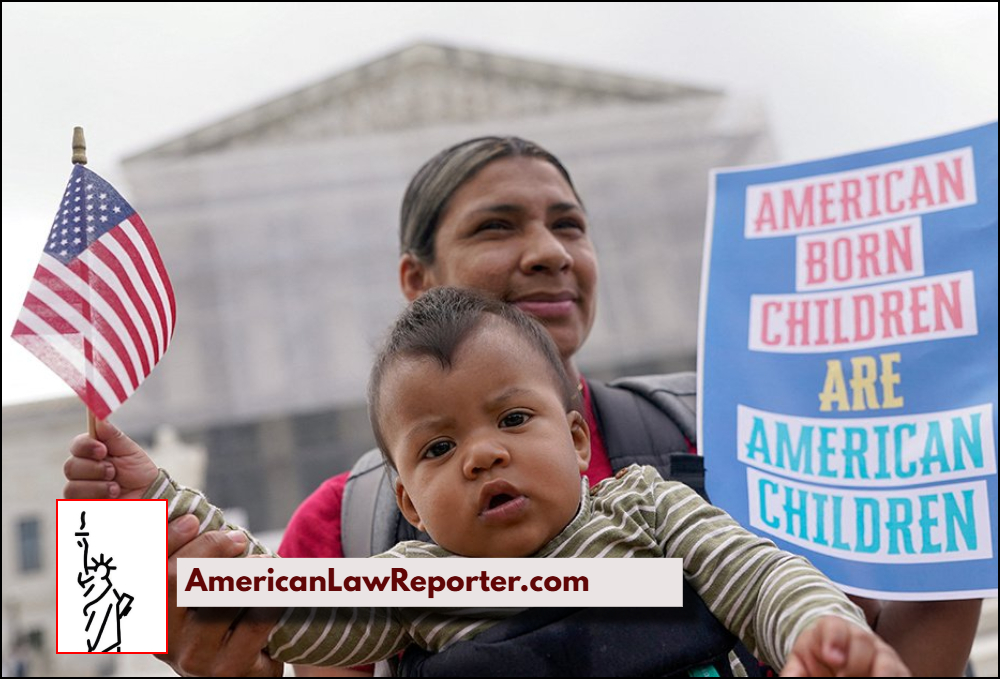In a development that may reshape the future of nationwide legal challenges to executive actions, a federal judge in New Hampshire has temporarily blocked President Donald Trump’s controversial executive order ending birthright citizenship—but not through the usual legal route.
Judge Joseph LaPlante’s decision to certify a nationwide class action lawsuit marks a strategic shift in how lower courts may continue to check executive authority after the Supreme Court’s recent decision curbing judges’ power to issue nationwide injunctions.
Class Action as Constitutional Workaround

Rather than issuing a nationwide injunction in the traditional sense, Judge LaPlante approved a class action that includes every child across the United States who could be affected by Trump’s January order. The move is being viewed by constitutional scholars and litigators as a creative workaround to the Supreme Court’s June ruling, which narrowed the scope of nationwide injunctions but left room for interpretation regarding class-based relief.
“This case isn’t just about birthright citizenship anymore,” said a constitutional law expert. “It’s about whether judges can still achieve the same protective outcomes using different legal mechanisms. Judge LaPlante has just shown one path forward.”
LaPlante acknowledged that the government’s legal theory wasn’t frivolous but said his decision to block the order was “not a close call.” He ruled that depriving children of citizenship based solely on their parents’ immigration status causes “irreparable harm,” calling U.S. citizenship “the greatest privilege that exists in the world.”
The Legal Stakes: Constitutional Clause vs. Executive Reinterpretation
At the heart of the dispute is the 14th Amendment’s Citizenship Clause, which states that “all persons born or naturalized in the United States, and subject to the jurisdiction thereof, are citizens.” For over a century, this clause has guaranteed citizenship to nearly every child born on U.S. soil.
But Trump’s executive order—issued in January—challenges that interpretation, claiming the phrase “subject to the jurisdiction thereof” excludes children born to parents who are in the U.S. illegally or temporarily. Government lawyers argue that this reinterpretation is necessary to correct what they call a “perverse incentive for illegal immigration” that threatens national sovereignty and economic stability.
The plaintiffs—represented by the ACLU and other advocacy groups—include a pregnant woman from Honduras seeking asylum and a Brazilian couple whose infant was born in Florida earlier this year. Their stories illustrate what they say are the very real, immediate stakes of the executive order.
“I fear our family could be at risk of separation,” wrote the Honduran woman, identified only by a pseudonym.
Legal Uncertainty for Now, But a Roadmap for Later?
The decision comes with a seven-day stay to allow for expedited appeal. It’s almost certain the issue will land before the U.S. Supreme Court once more—this time, potentially testing whether nationwide protections can still be extended through class action certification, even when universal injunctions are off the table.
Critics in the Trump Administration immediately blasted the decision. White House spokesman Harrison Fields accused the judge—himself a George W. Bush appointee—of “abusing class action procedures” to obstruct executive policy.
But Deputy Assistant Attorney General Eric Hamilton argued during the hearing that such expansive action was premature. He warned against a system where a single district court can “become the end-all-and-be-all” in determining federal policy.
Meanwhile, immigrant rights groups across the country are pursuing parallel litigation, seeking varying forms of relief from similar policies. “It’s not time to panic,” said Ama Frimpong, legal director at CASA. “There are different avenues through which we are all fighting to make sure this executive order never actually sees the light of day.”
Implications for Future Litigation
Legal analysts say Judge LaPlante’s ruling could have ripple effects far beyond the scope of immigration law. If upheld, the use of class actions to secure nationwide protections could become a go-to strategy for civil rights advocates challenging federal overreach—potentially redrawing the boundaries of judicial power in a post-injunction legal landscape.
As of now, Trump’s order remains unenforceable nationwide, not by injunction alone—but by the shared standing of every American child who could be affected.

